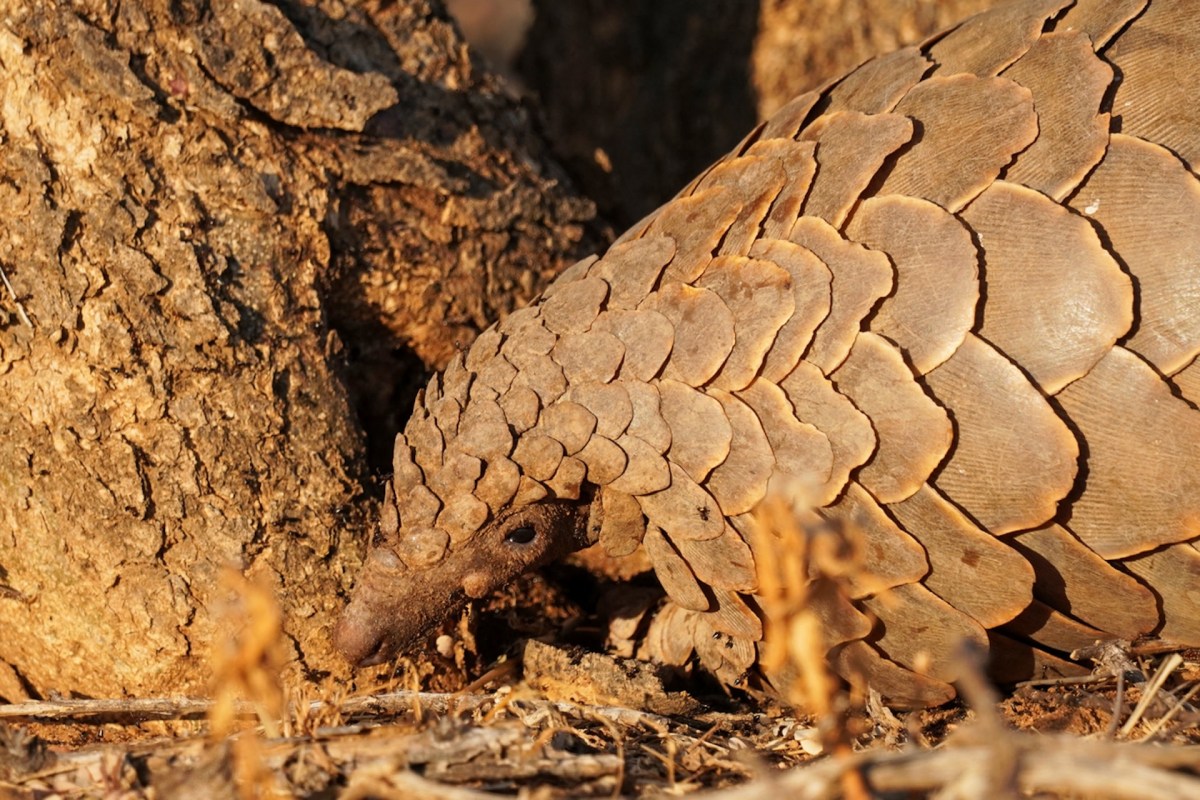The giant ground pangolin reemerged in Kenya in 2018, the first time the scaly creature had been spotted in 47 years.
It was thought to be locally extinct, but since 2022, "The Pangolin Project has been working with landowners around Nyekweri Forest to create space for these animals," The Guardian reported in December.
Pangolins are the most trafficked animal in the world, according to the outlet, which noted 23.5 tonnes (nearly 26 tons) of pangolins and their body parts were bought and sold in 2021 and that one million pangolins have been poached in the last 10 years. The giant ground pangolin is endangered.
Three other species live in Africa, and another four live in Asia. The nocturnal mammal is covered in tough, overlapping scales of keratin and eats termites and ants with its extremely long, muscular, sticky tongue, which can be half the length of its head and body, according to the Save Pangolins organization. When threatened, a pangolin curls up into a ball and can use its tail to defend itself.
The Guardian compared the being to "a huge, slow-moving pine cone." They range from about 3.5 to 73 pounds, according to Save Pangolins.
Awareness about the animal's plight is high, but only a few dozen may remain in Kenya, The Guardian reported.
"This knowledge has not translated into a robust conservation drive," Claire Okell, founder of The Pangolin Project told the outlet.
Beryl Makori, the project's programs and operations manager, said that deforestation and demarcation were causing the loss of pangolin habitat in Kenya.
Around 23 area landowners formed the Nyekweri Kimintet Forest Conservation Trust, protecting 5,000 acres. A lack of alternatives to farming has held others back from joining the effort, The Guardian reported.
"Community-led conservation is central to saving endangered species and creating coexistence between wildlife and the people living alongside wildlife," director of the Pangolin Crisis Fund Araluen "Azza" Schunmann said. "For wildlife to thrive, the people of the region need to thrive as well."
The Pangolin Project has helped landowners remove the animals' biggest threat: the lowest lines of electric fences.
"I feel we are protecting the last of the pangolins," Makori said. "We will give all it takes for a protected habitat with a viable population."
Join our free newsletter for cool news and cool tips that make it easy to help yourself while helping the planet.









